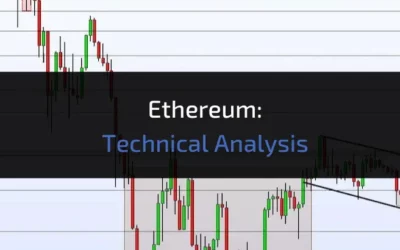Investing has always been a way to grow economic and personal wealth. Some of us look at it as intimidating and only meant for the mega-rich who can risk high amounts of money on the stock market, tech industries or start-ups. We look at famous investors, like Warren Buffet, Peter Lynch and Kirk Kerkorian as investing Gods who knew where to put their money and when.
The truth is, that investing, no matter what, is something that has been going on for centuries and has boosted many people’s portfolios in the long term. For new investors, looking to grow their wealth, there has never been a better time. Sure, the world might be an unstable place and investing in “non-conventional” systems like crypto and blockchains might be scary to some.
We are here to explore just how much Bitcoin and other cryptocurrencies might be the stock market of the future.
In this post, we will look into what exactly is the traditional stock market and the newer realm of crypto and which of the two are better investments for 2024 and beyond.
Stocks vs. Crypto: Main Differences
When someone begins to talk about investing, a majority of people initially think about the stock market and paint an image of Wall Street. In reality, the world of investing has grown and expanded to be so much more than that. Cryptocurrencies have gained a lot of popularity over the past few years and finally, are starting to be taken more seriously in the world of investing.
In the beginning, like many new things, there is a lot of fear and uncertainty. Crypto, especially BTC, has had its name in the news a lot throughout the years for having high highs and dropping unexpectedly. Naturally, this scares a lot of people, especially the average Joe who is putting their hard-earned cash into something on a hope and a prayer. But, taking a play from some of those great investors mentioned before, your best opportunity to invest in something, is usually from its early stages and kept for the long haul.
To understand how investing in crypto can be a great asset to have and help diversify your portfolio and grow your wealth, you first need to understand the difference between stocks and cryptocurrencies.
Stocks represent shares in the ownership of a company. Ordinary people, banks and even government agencies can and do own shares of stocks. There are Public Pension Funds, Sovereign Wealth Funds and even direct ownership of companies.
This aspect brings up a major point of debate and interest for some who are seeking decentralized finance options and one that is not controlled or can be manipulated by world leaders.

Yes, we know, this might start to sound like one big conspiracy theory. But it’s an important point to be made.
Crypto, on the flip side, is almost like the contrast to what a traditional stock market is. Bitcoin, from its beginning in 2009 has proclaimed to be a decentralized form of currency that is free from traditional banking and government control, an appealing point for many people around the world who are looking for a new way of investing.
With cryptocurrencies, you have specific coins, like Bitcoin and Ethereum, but also some totally new industries and concepts like dApps and NFTs that are completely changing the idea of money and assets.
Both traditional stocks and crypto have their pros and cons, as they have made a lot of money for some people, but have also lost a lot of money for others. The best investing strategy for yourself is to evaluate what you are comfortable with and what you see as the future of money: paper-printed fiat cash or a digital currency that can be used and accessed instantly from anywhere in the world, at whatever time.
Traditional Stocks vs. Cryptocurrencies
| Aspect | Traditional Stocks | Cryptocurrencies |
|---|---|---|
| Ownership | Shares in companies | Ownership of specific coins/tokens |
| Centralization | Centralized control | Decentralized operation |
| Regulation | Government oversight | Varied regulatory landscape |
| Volatility | Moderate | Highly volatile |
| Accessibility | Through brokerages | Via cryptocurrency exchanges |
| Liquidity | High | Variable |
| Strategy | Long-term investment | Speculative and long-term |
| Utility/Innovation | Limited innovation | Innovative technologies |
| Security/Risks | Company performance risks | Technological vulnerabilities |
| Transparency/Trust | Regulated disclosure | Varied transparency |
| Future Outlook | Established asset class | Emerging disruptive force |
| Investor Demographics | Wide range of investors | Initially tech-savvy, now broadening |
| Social Impact | Supports social initiatives | Enables financial inclusion |
Stock vs. Crypto: Which is More Profitable?
Whenever you look to invest, it is obvious that your main goal is to make a profit. Crypto, like Bitcoin and Ethereum, has skyrocketed since the beginning of 2024, creating a lot of profit for anyone who had previously invested in the coins.
Sure, the world of crypto can be volatile, but so is the stock market. History can prove just how crazy the market can be. The main difference between the two is that crypto right now has a better edge over traditional investing since it seems like the world is changing.
Again, not to buy into conspiracy theories and changes in the new world order, but it is obvious for everyone to see that things are starting to go in a different direction and people who have taken a chance on crypto early on, are the ones benefiting from it.
For example, let’s look at someone like Erik Finman, who invested $1,000 (that he got from his grandma) into BTC in 2011 when he was only 12 years old. At that time, Bitcoin was only worth around $10, but once it shot up to $20,000 at the end of 2017, he sold around $100,000 worth of his investment to start an online educational company, making him one of the youngest crypto millionaires ever. He has famously said “Bitcoin will either be nothing or everything, and I think it will be more everything. Or crypto will, at least”, and we think it’s sound advice.

The Winklevoss twins have also become Bitcoin BILLIONAIRES, famously known for their involvement with creating Facebook and suing Mark Zuckerberg, they used $65 million of their FB payment to start stockpiling into BTC.
In contrast, stocks have had a less explosive boom. Even with big names like Microsoft, Google and Apple, over the years, their growth cannot be compared to that of crypto.
Not even close.
Apple stocks at their height in 2020 had a return of 100 times their original investment from 2001, but if you look at crypto, Bitcoin has gone from $1 in 2010 to $65,000 by 2021(and even more now). That is a return of 65,000 on the initial investment! They are incomparable.
Of course, you need to consider the stability of stocks historically speaking, but if you are looking into the future of investing, the growth potential is pointing to the world of digital investments.
That said, I recommend that you follow a clear investment strategy in cryptocurrencies from the beginning.
Stocks vs. Cryptos: Which is Safer?
Regardless of what you invest in, the safety and security of your investment are crucial.
Because stocks have been around longer, it gives many people a safer feeling when investing, especially if companies are established and well-known. Crypto, although it can offer a high return, has a stigma for being volatile and is being questioned by governments and banking institutions.
The good news is that there are secure places to store your digital assets, like crypto cold wallets such as Material Bitcoin and others, for self-custodial security. You just don’t get that with the stock market.

Trading Stocks vs. Trading Crypto
When it comes to trading, there is no way to sugarcoat it: Crypto is much more volatile than stocks. But, having said that, there are a few advantages to this volatility and that is that you can stand to earn from it.
Consider this, with a traditional stock exchange, you need to abide by third-party institutions and play by their rules, such as closing times and regulations. With crypto, you can buy and sell 24/7 from anywhere in the world, without limitations or bank regulations.
Buying BTC is fast and easy, giving you the freedom to control your investments when you want, wherever you want, however you want. You have total custody and control of your trading strategy.
Pros and Cons
Cryptos are for you if...
You’re looking for high-reward investments and are willing to dedicate time to understanding the market.
❌ Con: It is relatively new and the future of digital currency is unknown.
✅ Pro: All directions are pointing to the future growth of crypto as more institutions and even governments are adapting to digital assets.
The best advice for any investor is to weather the storm, meaning that investing in cryptocurrencies is best for people who are willing to stick with the ups and downs of the digital market and keep digital currencies like BTC as long-term investments.
Stocks are for you if…
You prefer a more stable investment, backed by the performance of established companies.
❌ Con: Lower potential for high gains and is controlled by strict rules and regulations.
✅ Pro: They have a slower growth compared to cryptocurrencies, but also come with lower volatility.
When investing in stocks, make sure you understand the different markets and how shares can be split and managed.
The Best Strategy? Diversify
No matter what you choose to invest in, make sure to diversify your investments. If you go with cryptocurrencies, do not put everything only into BTC, but rather look into altcoins, tokens and crypto projects as alternative options to help diversify and build a crypto portfolio.
Keeping Your Investments Private and Safe
As crypto is a non-tangible asset, it can be hard for you to think of it as something you need to guard. But, you need to take extra steps to keep your digital assets safe.
Cold wallets are your best choice for storing your private keys, seed phrases and crypto from hackers and scammers.
Discover how to keep your crypto safe and continue to grow your investment with Material.
FAQs
Is investing in crypto still worth it?
Yes! It is never too late to start investing, just make sure to evaluate your risk tolerance and diversify where you can.
Does crypto have a future?
Given its increasing acceptance and integration into the financial ecosystem, it looks like it is here to stay.
Do you have to pay taxes on cryptocurrency?
You need to check with your country and region for specific tax laws, but yes, most countries consider cryptocurrencies as taxable assets.
Is it better to trade crypto or invest?
It depends on your risk tolerance and level of education. Trading involves more risk but potentially higher rewards.










0 Comments